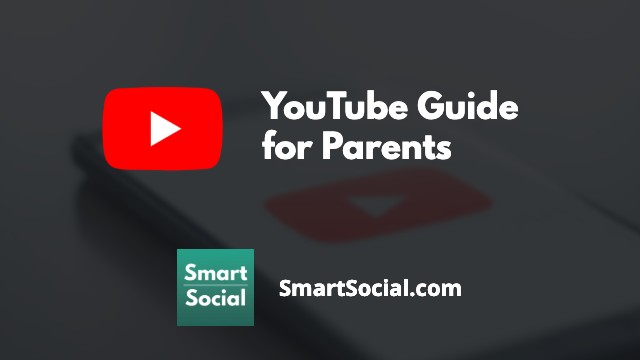How Sexting Can Damage A Student’s Reputation, Future, or Lead to Lawsuits
Green Zone App
(Click here to learn more)
Dangerous Social media challenge
(Click here to learn more)
Red Zone App
(Click here to learn more)
Gray Zone App
(Click here to learn more)

Sexting is the act of sending, receiving, or forwarding sexually explicit messages, photographs, or images of oneself to others via cell phones, popular apps, websites, and more.
The dangers of sexting are vast and can truly damage a teen or tweens’ future. It’s important to have a talk early and as soon as your child is given a smartphone or tablet.
Learn About Sexting, Sextortion, Revenge Porn and More From A Veteran Prosecutor
Veteran Los Angeles Prosecutor Jonathan Cristall says the legal ramifications of sending nudes can include the crime of possessing child pornography. In this episode of the SmartSocial.com Podcast, Cristall discusses how sexting can also lead to cyberbullying, social consequences, revenge porn, and sextortion.
Cristall is the author of What They Don't Teach Teens: Life Safety Skills for Teens and the Adults Who Care for Them. His 21st-century guidebook of life safety skills for teens, their parents, and other caregivers covers physical safety, sexual consent, social media, your rights with the police, situational awareness, dating violence, smartphones, and more.
3 experts offer tips for talking to tweens and teens about sexting
The digital age has changed how people share images and messages. Digital images are often emailed, posted to social media, or sent via text. They're never really private. The ability to screenshot, save, and forward photos often creates more problems than solutions.
The SmartSocial.com Team asked experts to share tips for talking to students about the pressures to send inappropriate pictures. They also explain the legal and emotional consequences that can come with sexting.
1. Be non-judgemental when talking to your teens and remind them that pictures can become permanent

Jessica Speer, Author
It's important for tweens and teens to understand that EVERY text message, image and video leaves a digital footprint and can be widely shared. In addition, sharing underage sexually explicit messages is illegal in many states.
According to KidsHealth, there are various reasons teens are sexting, such as peer pressure, getting attention, flirting, or as a joke or dare. The fact that tweens and teens’ prefrontal cortex is not fully formed, the part of the brain that manages impulse control, also contributes.
A 2017 Study by JAMA Pediatrics, found that 14% of youth reported sending sexts, and 27% reported receiving sexts. Also, 1 in 8 youths report forwarding or having a sext forwarded without their consent. These statistics are likely higher today.
How should parents discuss this with their tweens and teens? The key is making sure conversations happen regularly and nonjudgmentally.
- Regular family conversations about online behaviors builds a foundation as tweens and teens navigate their lives online. Share real stories about teens that overshared online and how it impacted their life. Share stories of how colleges and employers look at social profiles before accepting or hiring students. Make sure kids understand the legal consequences of sexting
- Regularly remind teens that nothing shared online is ever private. Before posting anything, it’s essential for teens to consider how they would feel if a wider audience saw the image or message. (i.e. Grandma, school principal, coaches, other friends, other parents, your whole school, college admissions person) Remind them that once images are out there, they leave a digital footprint. They can’t “take it back”
- Keep the tone of conversations non-judgemental and informative. This will help to keep the dialogue going instead of sounding like a lecture. Rather than leading the discussion, make sure you listen to your tween/teen. Discuss the pressures that teens often experience to send inappropriate photos.
Bottom line, sexting is becoming increasingly common. Start conversations as soon as your tween or teen has a smartphone and revisit conversations regularly. Developing healthy online habits takes attention, discussion, and lots of practice. The road is full of bumps but luckily gets smoother as parents help kids navigate the potholes.
2. Start the conversation early and establish ground rules for cell phone usage

Elizabeth Jeglic, Professor, John Jay College
The consequences of sexting could be severe. Nearly half of the states in the US consider sexting amongst teenagers to be the crime of possession of child pornography. It can result in prison sentences and mandatory registration on the sex offender registry. Parents need to be proactive and discuss the dangers of sexting with their children and teens.
- Before your child has access to a phone, discuss the dangers of sexting with your children/teens. The younger you start the conversation the more likely it will be that your child internalizes your values
- Talk to your teen about feeling pressure to send naked pictures and empathize with them. But remind them that no matter how hard it is to stand up to pressure, it is much harder to deal with the fallout of having a naked picture shared without consent
- Teach your children to immediately delete any nude or partially nude pictures they receive and report it to a parent
- Use hypothetical situations or media stories to role-play various sexting scenarios with your teen. Ask them how they would handle them. Use these types of exercises to teach problem-solving and critical thinking skills around these issues
- Establish ground rules for cell phone usage with your teens. Many parents require that teens let them check their phones regularly as part of a condition of use. If teens are violating the rules, then phone privileges should be suspended
3. Explain the consequences of sexting and how they would feel if it happened to them

Kayla Broek, Sex and Relationship Coach
With smartphone ownership among teens now being so common, sexting has become a popular way for them to explore their sexuality. It is important for parents to clearly explain the dangers involved, as with any other adult activity, rather than just telling them not to do it.
The biggest danger occurs because most teenagers can’t resist the urge to share the pictures and messages they receive with their friends. When this happens, the content can quickly make it around the whole school, or even onto the Internet for the world to see.
Ask your teenager how they’d feel if this were to happen to them. Explain the consequences clearly and how easily it could happen. This one awkward conversation could save them from a horrific outcome.
Sexting dangers in the news

Teenagers who have gotten used to a certain amount of independence may be finding that the only place they can flex their autonomy and act out a bit right now is online. Others don’t want to be asked for nudes, and the uptick in solicitations stresses them out. Either way, it’s an important time to talk about digital consent... Many teenagers don’t realize that sexting requires consent or that it can be a violation of trust and possibly the law. Unwelcome sexts may be experienced as sexual harassment and have negative psychological consequences. New York Times

A probe that began with reports of nude photos of students circulating at a middle school has mushroomed into a sexting investigation involving nearly a dozen students at two schools in Falls Church, VA... [A student] sent the image of [her ex-boyfriend's privates] to a second male student via Snapchat, according to the search warrant... after he received the photo he posted it on Snapchat for about 10 minutes, according to the search warrant. The second male student told investigators that other students may have taken images of the photo while it was posted on the social media site. Washington Post

Three Newtown High School students have been arrested and accused of involvement in a 'sexting' ring that circulated sexually explicit images and videos of other students, sometimes for money, police in Connecticut said… [The juvenile students were charged with] transmitting sexually explicit images and videos on cell-phone text messaging apps such as Snapchat, Facetime, iMessage, KiK and others. CNN
Conclusion
With internet-enabled devices now easily accessible for most tweens and teens, it's important to educate your children on the legal and emotional consequences of sexting before an uncomfortable incident occurs.
To continue learning how to talk to kids about using social media responsibly, consider unlocking SmartSocial.com's device ownership bundle or signing up for our VIP membership.
Protect your family and enter for a chance to win cool prizes
Become a member or log in to learn more on this topic
Protect your family and enter for a chance to win cool prizes

., start learning from this page to earn points!*
Hello, I'm Josh, the founder of SmartSocial.com.
Don't leave this page until you fill out our feedback form that will appear after you learn from the resources...
Here are some of the latest resources at SmartSocial.com
Become a Very Informed Parent (VIP) to get our social media suggestions in your email every Tuesday & Thursday.



Hello, I'm Josh, the founder of SmartSocial.com. Protect your family by taking my 1 minute quiz
This quiz will help you understand how safe your family is


Schools & Districts: Partner with us to protect your community online
Our remote presentations (and website) teach over a million parents and students each year how to be safe so they can shine online. We teach students how their accounts can be used to create a portfolio of positive accomplishments that impress colleges and employers.


Join Our Smart Social Podcast
each week on iTunes
With over 500 episodes, Josh Ochs interviews psychologists, therapists, counselors, teachers, and parents while showing you how to navigate social media to someday shine online.
Listen on:



.jpg)

.jpg)

_.jpg)
.png)